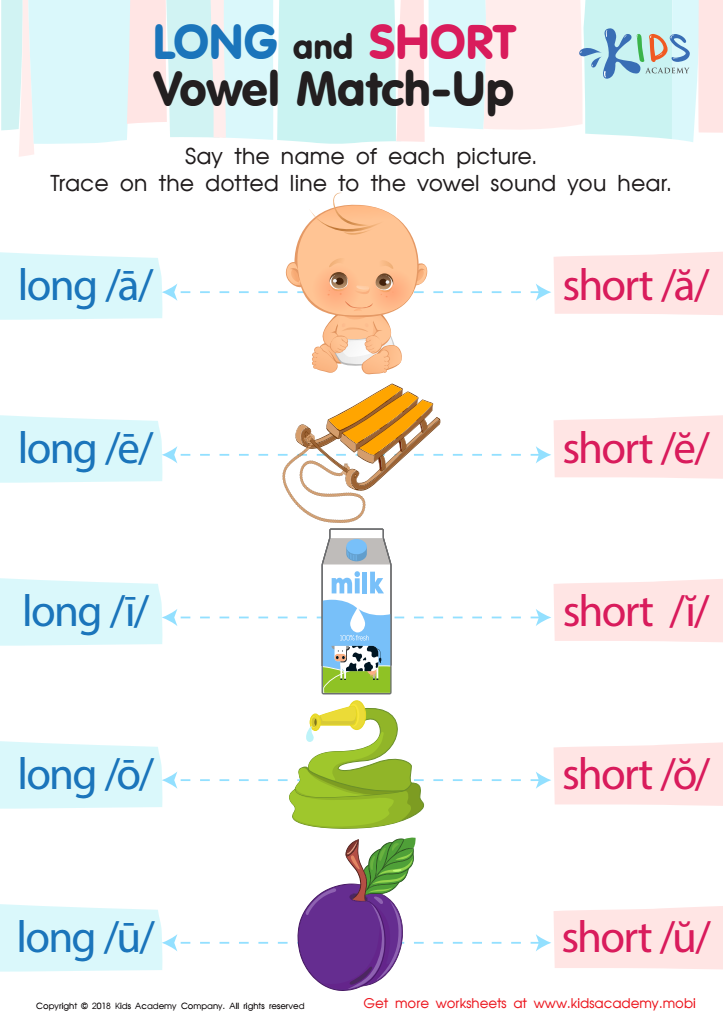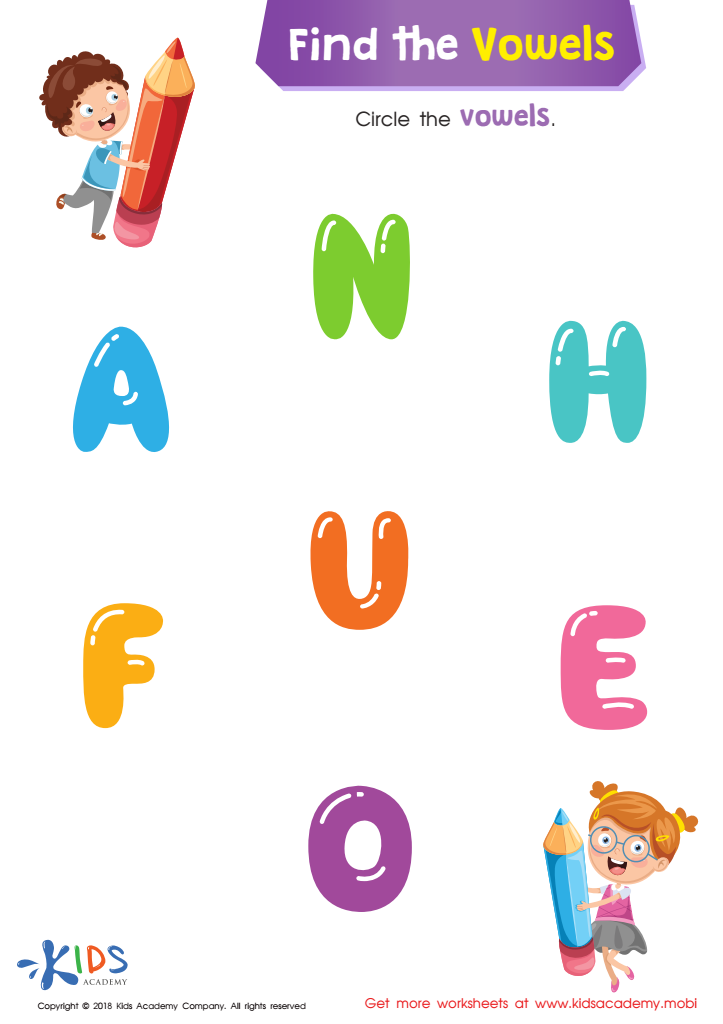Vowel Recognition Normal Vowels and Consonants Worksheets for 6-Year-Olds
6 filtered results
-
From - To
Help your 6-year-olds master vowel recognition with our engaging worksheets! Designed specifically to enhance early literacy skills, our normal vowels and consonants worksheets offer fun and interactive activities that make learning enjoyable. Children will identify, distinguish, and practice using vowels in a variety of contexts. These worksheets feature colorful illustrations and age-appropriate exercises that cater to young learners' understanding of the alphabet. By reinforcing the concept of vowels versus consonants, your child will build the foundational skills necessary for reading and writing. Explore our comprehensive resources to enrich your child's educational journey and foster a love for language!


Long and Short Vowel Match up Reading Worksheet


Let's Check Long Vowels: Assessment Worksheet


Short Vowels /e/, /i/, and /u/ Worksheet


Short Vowel Eggs Worksheet


Find the Vowels Reading Worksheet


Long and Short Vowel Sentences: Assessment Worksheet
Vowel recognition is crucial for six-year-olds as it lays the foundation for reading and writing skills. Young learners need to differentiate between normal vowels (like A, E, I, O, U) and consonants, as this understanding directly impacts their phonemic awareness—the ability to hear, identify, and manipulate sounds. Recognizing vowels is essential because these letters often carry the core sounds in words, making them pivotal for decoding language effectively.
Additionally, vowels are integral to word construction. For example, in English, almost every word contains at least one vowel, and understanding their role helps children blend sounds, spell words accurately, and make sense of written language. By grasping the connection between vowels and consonants, children improve their literacy skills, which are vital for academic success.
Parents and teachers play a significant role in fostering these skills. Engaging children in fun activities, such as games and songs centered around vowel sounds, can make learning enjoyable and memorable. Encouraging reading at home and in the classroom further reinforces this knowledge. Ultimately, caring about vowel recognition equips six-year-olds with the tools necessary for confident communication and lifelong learning.
 Assign to My Students
Assign to My Students








